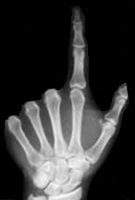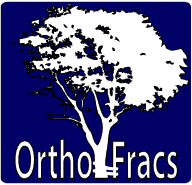Journal Club
March 2010
Long-term results of radial head resection following isolated radial head fractures in patients younger than forty years old
Samuel A. Antuña, José M. Sánchez-Márquez and Raúl Barco J Bone Joint Surg Am. 2010;92:558-566
Shoulder and Elbow Unit, Hospital Universitario La Paz, Madrid, Spain
Reviewed by
Dr Emily Kong
MBBS | Accredited Orthopaedic Registrar
Background
- Radial head resection previously treatment of choice for inoperable fractures
- concerns regarding
- Alters elbow kinematics
- valgus instability,
- stiffness
- proximal migration of the radius
- concerns regarding
- Radial head replacement becoming more popular
- Aim to review long term results of radial head resection withfracturenot associated with elbow instability
Method
- 26 patients
- <40 yrs old retrospective review of minimum 15 years
- Isolated radial head fracture treatment with resection
- 6 patients Mason II,
- 20 patients Mason III
- <40 yrs old retrospective review of minimum 15 years
- Exclusion criteria:
- documented elbow dislocation,
- associated elbow fractures,
- MCL injury,
- failure of
- non-operative or operative treatment,
- delayed radial head excision
- Outcomes evaluated with:
- Mayo Elbow Performance Score (MEPS),
- Disabilities of Arm, Shoulder and Hand Score (DASH)
- Radiographic Assessment of:
- osteoarthritic changes,
- carrying angle,
- radial shortening
Results
- Elbow pain:
- 21 patients no pain,
- 3 patients mild,
- 2 patients moderate
- Wrist pain:
- 2 patients mild pain,
- 1 patient moderate,
- 1 patient had DRUJ instability
- Ulna Nerve Irritation
- 3 patients
- ROM:
- mean arc of motion 9° to 139°,
- mean pronation 84°,
- mean supination 85°
- Strength:
- 19 elbows had normal strength c.f. opposite side
- 19 elbows had normal strength c.f. opposite side
- Instability:
- 4 patients elbow instability, 1 patient DRUJ instability
- 4 patients elbow instability, 1 patient DRUJ instability
- MEPS: mean score 95 points
- DASH: mean score 6 points
- Mean carrying angle 21° Vs 10° on opposite side
- XR changes of OA:
- mild 17 patients,
- moderate 9 patients
Discussion
- Radial head is an important stabiliser of elbow and forearm
- treatment of unstable elbow fracture dislocations must restore radiocapitellar articulation
- Consider internal fixation or arthroplasty rather than resection to avoid delayed complications:
- Pain
- Instability
- Proximal radial translation
- Decreased strength
- Osteoarthritis
- Cubitus valgus
- Pain
- Kinematics of elbow are considerably altered after radial head excision:
- Unrecognised acute ligamentous damage at time of injury
- Progressive stretch of medial ligament complex over time
- Unrecognised acute ligamentous damage at time of injury
- Pros:
- longest follow up series to date, specifically analyses results in young patients
- longest follow up series to date, specifically analyses results in young patients
- Cons:
- no standard to compare, small patient numbers
Take home message
- Isolated fractures of the radial head can be treated with excision with good long term results.
- But first, assess for associated instability or ligamentous injuries.
Webpage Last Modified:
27 March, 2010



